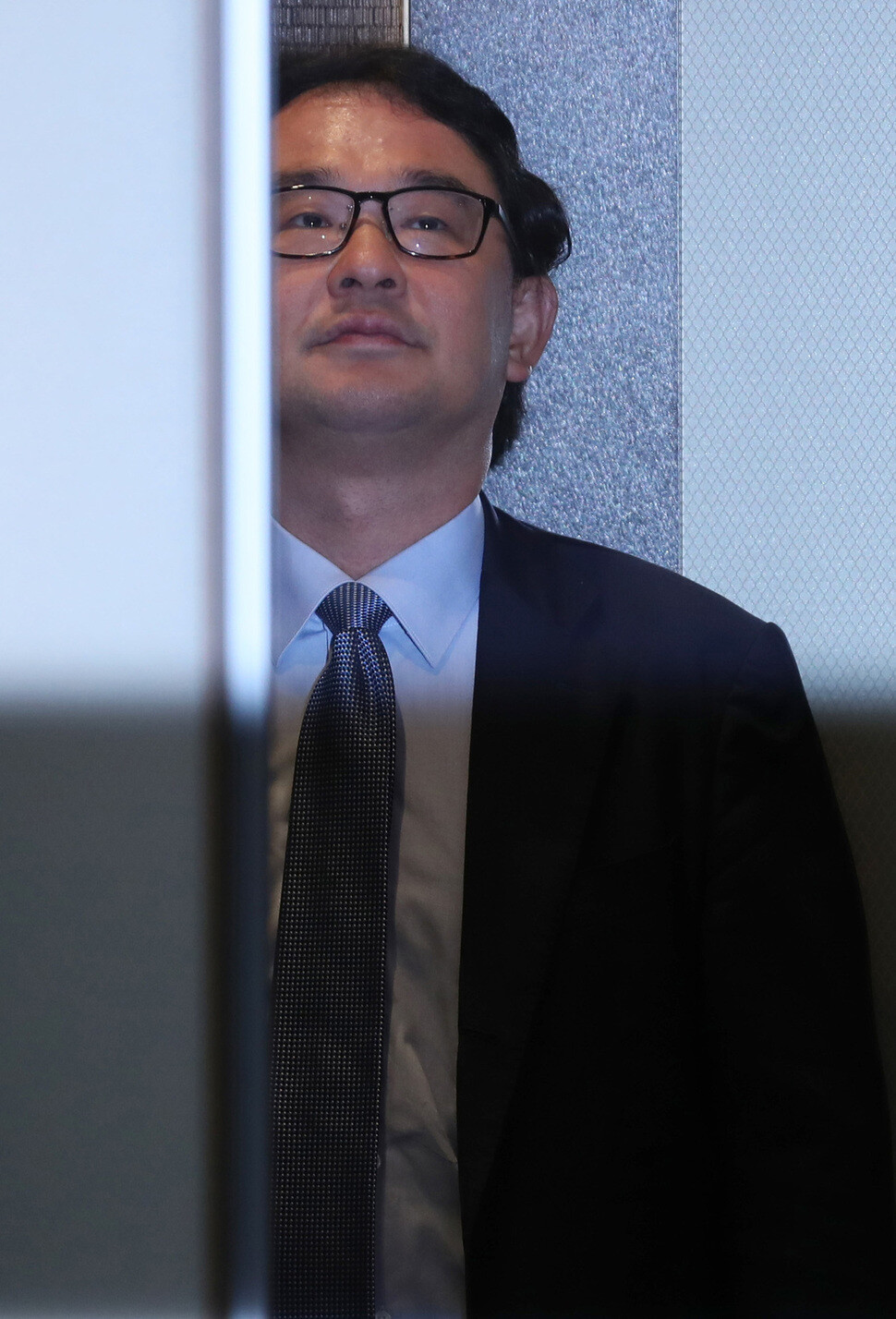hankyoreh
Links to other country sites 다른 나라 사이트 링크
S. Korea formulating response to Japan’s pending dump of contaminated water

The South Korean government's response to Japan's plan to dump contaminated toxic water from the Fukushima Daiichi Nuclear Power Plant into the ocean is taking shape.
In a Blue House Cabinet meeting on Aug. 13, the government decided on measures to actively address the problem of Fukushima's contaminated water. On the same day, Foreign Ministry Spokesperson Kim In-cheol said, "With South Koreans' health and safety as our top priority, we will be requesting that Japan make a specific statement about this and disclose relevant information." On Aug. 19, the South Korean Ministry of Foreign Affairs (MOFA) summoned Tomofumi Nishinaga, minister for economic affairs at the Japanese Embassy in Seoul, and requested an official Japanese statement regarding plans to dump contaminated water from Fukushima into the ocean.
After first learning of Japan's plan to dump contaminated water from the Fukushima nuclear disaster into the ocean last August, the South Korean government has been discussing the matter with Japan for nearly a year behind-the-scenes. But with little progress and South Koreans' safety at stake, the government said that it was necessary to turn the matter over to public opinion. Although the two countries have discussed creating a body of arbitrators to handle the issue, this effort failed to achieve anything due to differences in opinion over the nomination of experts.
After the explosion in 2011, Fukushima's No. 2 reactor is producing 170 tons of contaminated water a day, making it likely that the total storage capacity will reach its limit (1.37 million tons) by the summer of 2022 -- even when taking into account storage expansion plans. While the Japanese government is currently discussing various disposal options such as an ocean dump, evaporation, landfills, pipelining it into bedrock, electrolysis treatment, and long-term tank storage, there are geographic limits to building additional storage facilities. Faced with such a situation, and taking into account threats to South Koreans' health and marine ecology posed by the dumping of contaminated water into the ocean, the South Korean government has said that it intends to file complaints to international bodies. Because the issue is a global environmental issue rather than one just limited to South Korea-Japan relations, the government believes that it can be a legitimate grievance in the international community.
Although the government's formal position is that the objection to the dumping of Fukushima's contaminated water is not a countermeasure to Japan's trade retaliation, in a period of worsened South Korea-Japan relations, it can also be interpreted as a form of leverage against Japan. A government official said that "the top priority is the safety concerns of the public" but added that "[the issue] cannot be entirely unrelated to South Korea-Japan relations."
With the Tokyo Organizing Committee for the Olympic and Paralympic Games recently disclosing that it would supply the Olympic Village with food from Fukushima, concerns of radioactive contamination are growing internationally. The Tokyo Olympics is an event where much is at stake politically for Japanese Prime Minister Shinzo Abe. Sungkonghoe University professor Yang Ki-ho interpreted the current situation as, "[the government] seems to be considering a 'Fukushima card', given the impasse between the governments of South Korea and Japan in efforts to find a solution to the issue of forced laborers, the removal of South Korea from Japan's trade white list on Aug. 28, as well as concerns that Japan may further pressure South Korea by adding individual authorization categories."
Yang added that "It is a risky card because if South Korea formally litigates this issue at an international organization and connects it to the Tokyo Olympics, Japan's rightwing establishment can use that to attack South Korea." A South Korean government official also said, "In the current situation, it is inappropriate to be connecting the Fukushima contaminated water issue and the Tokyo Olympics."
By Park Min-hee, staff reporter
Please direct comments or questions to [english@hani.co.kr]

Editorial・opinion
![[Editorial] Yoon must halt procurement of SM-3 interceptor missiles [Editorial] Yoon must halt procurement of SM-3 interceptor missiles](https://flexible.img.hani.co.kr/flexible/normal/500/300/imgdb/child/2024/0501/17145495551605_1717145495195344.jpg) [Editorial] Yoon must halt procurement of SM-3 interceptor missiles
[Editorial] Yoon must halt procurement of SM-3 interceptor missiles![[Guest essay] Maybe Korea’s rapid population decline is an opportunity, not a crisis [Guest essay] Maybe Korea’s rapid population decline is an opportunity, not a crisis](https://flexible.img.hani.co.kr/flexible/normal/500/300/imgdb/original/2024/0430/9417144634983596.jpg) [Guest essay] Maybe Korea’s rapid population decline is an opportunity, not a crisis
[Guest essay] Maybe Korea’s rapid population decline is an opportunity, not a crisis- [Column] Can Yoon steer diplomacy with Russia, China back on track?
- [Column] Season 2 of special prosecutor probe may be coming to Korea soon
- [Column] Park Geun-hye déjà vu in Yoon Suk-yeol
- [Editorial] New weight of N. Korea’s nuclear threats makes dialogue all the more urgent
- [Guest essay] The real reason Korea’s new right wants to dub Rhee a founding father
- [Column] ‘Choson’: Is it time we start referring to N. Korea in its own terms?
- [Editorial] Japan’s rewriting of history with Korea has gone too far
- [Column] The president’s questionable capacity for dialogue
Most viewed articles
- 1Months and months of overdue wages are pushing migrant workers in Korea into debt
- 2Trump asks why US would defend Korea, hints at hiking Seoul’s defense cost burden
- 3[Guest essay] Maybe Korea’s rapid population decline is an opportunity, not a crisis
- 4[Editorial] Yoon must halt procurement of SM-3 interceptor missiles
- 51 in 3 S. Korean security experts support nuclear armament, CSIS finds
- 6At heart of West’s handwringing over Chinese ‘overcapacity,’ a battle to lead key future industries
- 7Fruitless Yoon-Lee summit inflames partisan tensions in Korea
- 8[Column] Can Yoon steer diplomacy with Russia, China back on track?
- 9South Korea officially an aged society just 17 years after becoming aging society
- 10Under conservative chief, Korea’s TRC brands teenage wartime massacre victims as traitors